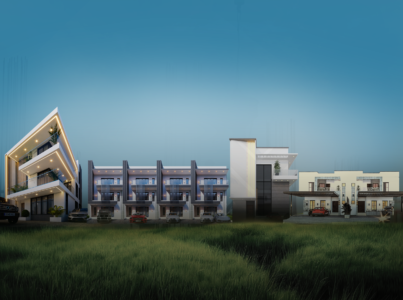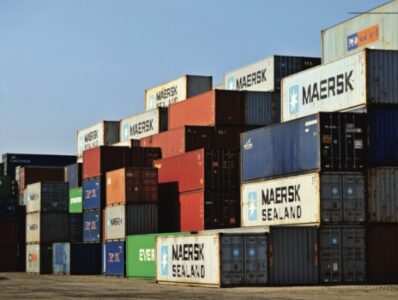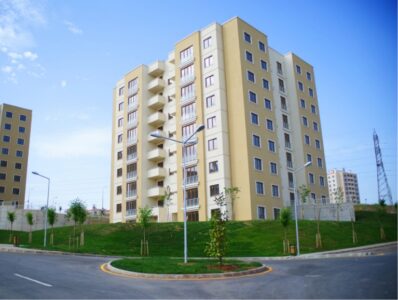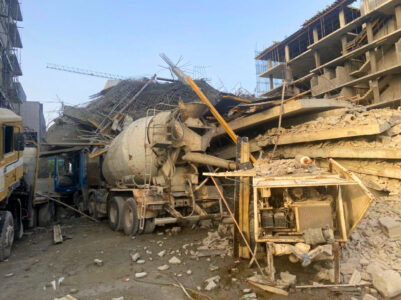Category: Editorial
HomeCategory: Editorial
Redefining Real Estate Development in Nigeria and Beyond
Since its inception in 2006, Brains and Hammers has emerged as a powerhouse in Nigeria’s real estate sector, revolutionizing the landscape with its commitment to excellence and innovation.
Forging Positive Landlord-Tenant Relationships in Nigeria
Landlords have certain rights and responsibilities that are governed by the law. For example, you have the right to collect rent, evict tenants for non-payment or breach of contract, and inspect your property for damages. You also have the responsibility to provide a habitable and safe environment for your tenants, maintain and repair your property, and respect your tenants’ privacy and quiet enjoyment.
- May 29, 2023
- Editorial
Industrial Market Review
The industrial market has remained resilient across Africa, supported by different government initiatives to boost the sector. Some of these initiatives include a reduction in land acquisition costs and investments geared towards improving transport and energy infrastructure, as is the case in Egypt. In general, inadequate or poor transport and energy infrastructure continue to act as a significant drag on the expansion of the sector.
- May 22, 2023
- Editorial
REVEALED! Quick Home Ownership Schemes they Don’t Want you to Know About
Are you one of the millions of working Nigerians struggling to own a home? You’re not alone. Out of the 69.54 million Nigerians reported by the National Bureau of Statistics (NBS) to have been gainfully employed as at third quarter of 2018, only 5 million of the total number earn a salary of N3 million and above per year, as compiled from data by Graeme Blaque Group, a Lagos-based advisory firm.
- May 1, 2023
- Editorial, Main story
Davido’s Timeless Concert Takes Centre Stage: A Link to his Multi-Million Naira Real Estate Interests
Nigerian superstar, Davido, is a household name in the music industry, and he also has huge interest in the real estate sector. At his recent comeback concert, Timeless, held at Tafawa Balewa Square (TBS), Davido wowed his fans with an impressive stage design and performance. An unforgettable experience for his fans who had eagerly awaited new music and a live performance from their favourite artist.
Private Property and the High Cost of Acquisition in Nigeria
The high cost of private property acquisition and the unwillingness of banks to lend to low-income earners in Nigeria are two major factors that hinder the development of affordable housing in the country. According to a report by PwC, Nigeria has a housing deficit of about 22 million units, which would require an annual investment of $363 billion for 10 years to bridge. However, the average cost of building a house in Nigeria is estimated at $40,000, which is beyond the reach of most Nigerians who earn less than $2 per day.
Exposed: Nigeria’s Building Collapse Crisis – How to Identify Warning Signs and Take Action
Building collapse is a serious issue in Nigeria that has caused many tragedies over the years. According to a report by Brookings, Nigeria had the highest frequency and intensity of building collapse in Africa between 1974 and 2019, with over 221 buildings collapsing across different Nigerian cities…
- April 13, 2023
- Editorial, Main story
Understanding and Addressing the Housing Crisis in Nigeria: Causes, Challenges, and Solutions
In Nigeria, the shortage of housing units poses a significant challenge, particularly in urban areas, affecting millions of people. According to the World Bank, the country needs about 700,000 housing units annually to meet the demand of its growing population, but only 100,000 are provided. Consequently, there is a housing deficit of at least 17 million units that is expected to increase as the population doubles by 2050.
- April 2, 2023
- Editorial, Main story
Inclusive and Affordable Housing in Nigeria: Opportunities, Innovations, and the Importance of Inclusive Policies
Accessing housing is a fundamental need for all human beings, but it is a major challenge in Nigeria. With a rapidly growing population of over 200 million people, more than half of whom reside in urban areas, the country faces a significant housing deficit of 28 million units. A majority of the urban population lives in substandard settlements lacking basic amenities like proper sanitation, security, and infrastructure.
Subscribe
Want to be notified about our News. Just sign up and we'll send you a notification by email.










